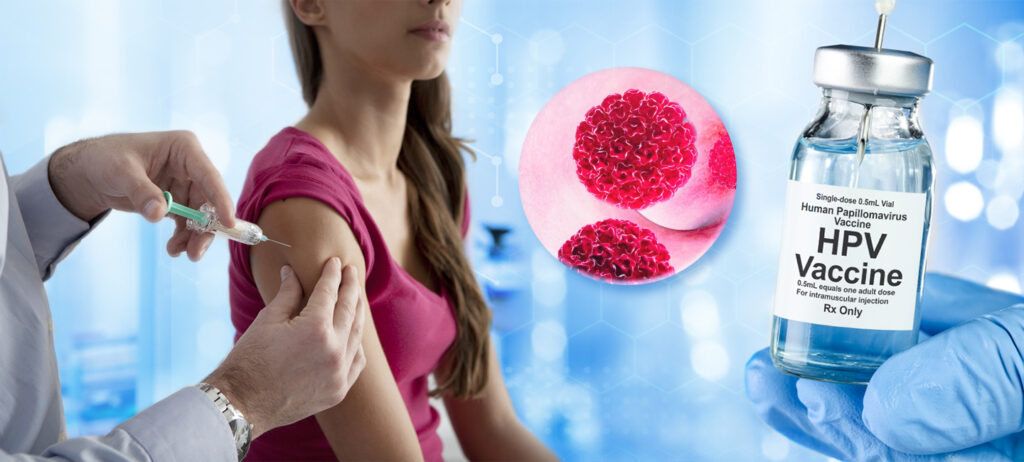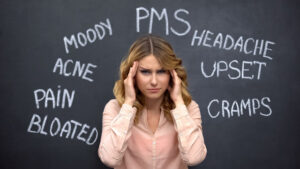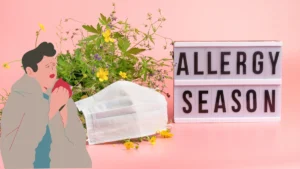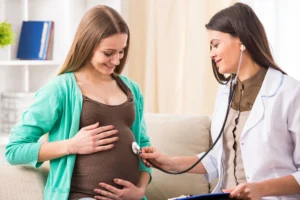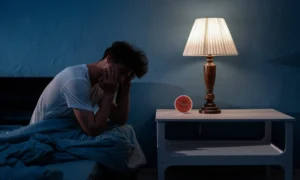At Big Apple Medical Care, we are committed to empowering patients with up-to-date medical knowledge. Human Papillomavirus (HPV) vaccination is one of the most powerful tools in preventing cervical cancer. Yet, questions often arise: When is the ideal age to vaccinate? How effective is it at different ages? What about older ages? In this article, we will explore all these aspects: the biology of HPV vaccination guidelines, effectiveness by age, catch-up strategies, risks & benefits, and practical advice so families and individuals can make informed decisions.
What Is HPV and How Does It Cause Cervical Cancer
Understanding why age matters requires knowing what HPV is and how it works.
-
HPV (Human Papillomavirus) is a group of related viruses, some of which are termed high-risk HPV types. These types are responsible for the majority of cervical cancers (and other anogenital or oropharyngeal cancers).
-
HPV is typically transmitted via sexual contact (including skin-to-skin) and often during the early years after sexual debut. Many infections are cleared by the immune system, but persistent infection with high-risk HPV types (e.g., HPV-16, HPV-18, among others) can lead to cervical intraepithelial neoplasia (CIN) and eventually invasive cervical cancer over several years.
-
The vaccine works by inducing immunity before exposure to the virus, which is why vaccinating at a younger age before sexual activity begins is central to its effectiveness.
Global & National Recommendations: What Age Is Best According to Major Health Authorities
Here are the guidelines from the U.S. and international bodies:
| Authority | Recommended Age for Routine HPV Vaccination | Range for Initiation / Catch-Up |
|---|---|---|
| CDC / ACIP (USA) | Routine vaccination at 11-12 years; can start at age 9. | Catch-up for those through age 26 if not adequately vaccinated; for ages 27-45, shared clinical decision making may apply. |
| American Cancer Society (ACS) | Recommends routine vaccination between ages 9 and 12 years. | Catch-up through age 26 for females and males if not earlier vaccinated. |
| ACOG (Obstetrics & Gynecology professionals) | Same: target 11-12 years, initiation allowed at 9; for those who start before 15, two-dose schedule. | Three doses for those 15 and older, or immunocompromised. |
Why Ages 9-12 Are Ideal: Science Behind Early Vaccination
Several biological, epidemiological, and public health reasons underpin why the ages of ~9 to 12 are considered the best window:
-
Immune Response Is Stronger
Younger adolescents (preteens) produce a robust antibody response to HPV vaccines. Studies show that those vaccinated between ages 9–14 with two doses (spaced appropriately) develop immune protection comparable to older adolescents who receive three doses. -
Vaccination Before Exposure Minimizes Risk
Since HPV is transmitted sexually, vaccinating before sexual debut or early exposure is key. The vaccine is preventive, not therapeutic; it doesn’t treat existing infections. Thus, vaccinating earlier protects individuals before they are likely to have acquired the virus. -
Simplified Dosing Schedule
For those who start vaccination before their 15th birthday, most guidelines allow a 2-dose schedule (with 6-12 months between doses). This helps compliance and reduces cost, clinic visits, and adverse events. -
Greater Public Health Impact
Early vaccination leads to lower rates of high-grade precancerous lesions (CIN2/3), genital warts, and eventually, cervical cancer. Widespread vaccination at younger ages leads to herd immunity, reducing HPV circulation in the community.
Effectiveness of HPV Vaccination by Age
How does vaccine efficacy and benefit vary depending on the age when it’s given?
| Age Group | Vaccine Doses Required | Effectiveness / Benefits | Caveats |
|---|---|---|---|
| Ages 9-14 (before age 15) | 2 doses separated by 6-12 months typically. | Very high immune response; high protection before exposure; lower number of doses increases adherence. | Must ensure correct interval; some immune compromise or unusual health may require 3 doses. |
| Ages 15-26 | 3 doses required. | Still effective in preventing new infections of HPV types covered by vaccine; meaningful reduction in disease even if partial prior exposure. | Less benefit compared with earlier vaccination; prior exposure may reduce effect; adherence to all doses more challenging. |
| Ages 27-45 (and older) | Often 3 doses if vaccination is initiated. Shared decision-making recommended. | Some benefit against HPV types not yet encountered; but lower absolute benefit because many may already have been exposed. | Cost, potential for side effects, and possible diminished incremental benefit; not universally recommended unless risk factors present. |
Catch-Up Vaccination: What If You Missed the Ideal Age
Many individuals or their guardians might not vaccinate exactly at ages 9-12. What then?
-
Catch-up vaccination is endorsed for those who weren’t vaccinated when younger. Until age 26, vaccination is recommended in many countries.
-
For individuals aged 27-45, vaccination may still offer benefit, depending on risk of exposure and sexual history; however, guidelines emphasize a shared decision-making process, weighing benefits vs costs.
-
Even for those older, while vaccine won’t reverse existing HPV‐caused disease, it can prevent infection with types they haven’t encountered.
Risks, Side Effects, and Safety
As with all vaccines, safety is important to understand.
-
HPV vaccines have been studied extensively and are considered very safe. Common side effects include mild pain at injection site, swelling, occasional fever, headache. Serious adverse effects are rare.
-
No link has been found between HPV vaccination and causing earlier onset of sexual activity. Vaccine safety and timing do not promote risky behavior.
-
For immunocompromised individuals, vaccine schedule and number of doses may differ; closer follow-up may be required.
Real-World Data: Outcomes When Vaccinating at Optimal vs Later Ages
-
Studies from several countries show that vaccinating early (ages 9-14) yields significantly greater reduction in the incidence of cervical precancers (CIN2/3) compared to vaccination in older teens/adults. Age at vaccination inversely correlates with efficacy: the younger you vaccinate (before exposure), the better.
-
For example, effectiveness of prevention of genital warts or precancerous lesions is markedly higher when vaccination occurs before sexual debut.
Special Considerations
Some special patient-scenarios and what to consider:
-
Immunocompromised persons (e.g. HIV, organ transplant): May require three doses even if younger than 15; immune response may be lower. Vaccine still beneficial.
-
Individuals with history of HPV infection or cervical abnormalities already: Vaccine cannot treat existing infection or disease, but may provide protection against other HPV types.
-
Adults older than 26: Shared decision making needed; benefits may be smaller, but may still be worthwhile in certain cases (new partners, low prior exposure)
Implementation: How to Plan for Vaccination
Here are practical steps for parents, individuals, and healthcare providers:
-
Discuss with a Healthcare Provider Early
At pre-teen or early teenage checkups, bring up HPV vaccine. Providers should offer it routinely at 11-12 years, but accept requests earlier (e.g. age 9). -
Check Vaccine Type & Dosing Schedule
-
If starting before 15: two doses, spaced 6-12 months apart.
-
If starting at or after 15: three doses over ~6 months (0, 1-2 month, 6 month).
-
-
Keep Documentation
Ensure records of all doses; sometimes earlier doses spaced incorrectly require additional dose. -
Continue Cervical Cancer Screening
Even vaccinated individuals still need regular cervical screening (Pap smear, HPV testing etc.), as the vaccine does not protect against all HPV types. -
Public Health & Community Awareness
Communities (including in Pakistan) must increase awareness, reduce stigma or misconceptions about HPV vaccine, and ensure access and affordability.
Why Delaying Vaccination Means Lost Opportunity
-
Once sexual activity begins, or someone has exposure to HPV, the chance that they’ve already acquired one or more HPV types increases, reducing incremental benefit of vaccine.
-
The longer delay, the more likely exposure has occurred, making prevention less effective.
-
Many catch-up vaccines do work, but require more doses, have somewhat reduced benefit, and may not prevent disease caused by HPV strains already encountered.
What About Vaccination Beyond 26 Years of Age?
-
While guidelines traditionally focused on ages up to 26, more recent approvals (e.g. in some countries) allow HPV vaccination for adults up to 45 years under shared decision-making.
-
In this age group, the vaccine can protect against strains not yet acquired and reduce future risk, but benefit is lower on an individual level and public health impact may be modest.
-
The decision depends on personal risk (number of sexual partners, partner history, exposure risk), vaccine availability & cost, and patient preference.
Summary: Optimal Strategy & Key Takeaways
-
The optimal age for HPV vaccination is around 11-12 years, with the ability to begin as early as age 9.
-
Early vaccination (before exposure) yields greatest protection, simplified dosing, and best public health impact.
-
If vaccination is missed in the ideal window, catch-up vaccination up to age 26 is strongly recommended.
-
For ages 27-45, vaccination may still be considered with careful discussion of risks, benefits, and exposure history.
-
Safety of the vaccine is well-established; side effects are generally mild.
-
Vaccination is only one piece: cervical cancer screening must continue; vaccine doesn’t prevent all HPV types.
At Big Apple Medical Care, we encourage parents, adolescents, and adults to think about HPV vaccination proactively. If you or your child are approaching age 9-12, that is the perfect time to act. If you missed that window, still talk with us – there are options to protect your health. Together we can work toward a future where cervical cancer is much rarer.

